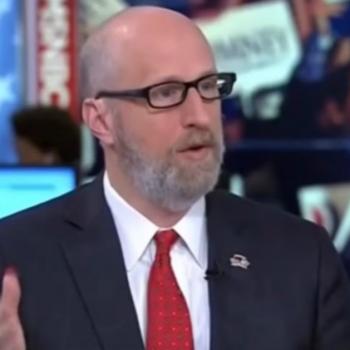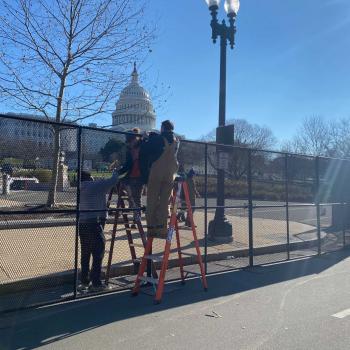Lots of Christians talk about social justice but what are they doing besides giving speeches, writing blogposts, or talking on podcasts? A while back, Tim Keller warned about making social justice a partisan political issue. Now comes a reminder that Christians should not take sides politically even as they advocate and pursue social justice:
A call to unity can be easily misunderstood as advocating willful blindness to injustice and complacency in the face of sin. Some would argue, rightly, that refusing to take a side is taking the side of injustice. So I feel the need to clarify.
I contend that Christians should not take a side in the ongoing right vs. left, liberal vs. conservative turf war that consumes 24-hour news cycles and determines social discourse.
Rather, we are to take the side of the Kingdom of God.
Refusing to take a side in the “us vs. them” war of our current situation is not the same as political silence. Far from this, we are called to promote the ethic of the Kingdom in contradiction to all earthly political platforms. At times, the Kingdom will appear in line with one or more American political parties. This is incidental. Christians are called by God to advocate for the positions and values of the Kingdom based on different questions and goals than those of the American political machine.
This way of looking at Christian advocacy is all justice and no society. If you are actually going to reform a social system that is riddled with injustice, you may actually have to become involved in policy formation, legislation, running for political office, holding debates with other legislators, and even joining a political party that is about the only way you can run for office in the United States.
Just consider the vast array of laws, government agencies, and policies that the Progressives proposed and implemented as a way to roll back the injustices of big business, big cities, and big collections of industrial workers:
The industrial revolution, mass urbanization, and massive influxes of immigrants fundamentally altered the United States and pushed Americans to think about American society in new ways. According to Richard Hofstadter, author of the influential book The Age of Reform, the Populists were the displaced elite of the idealized and virtuous farmers who used morality to appeal to agrarian myth. They used this myth to reform the system and encourage the government to preserve the agrarian economic system instead of an urban, immigrant industrialized vision of the United States. While there is not one lone narrative of the Progressive Era, the key ideas included government intervention, the end of the laissez faire economic system, a critical change to direct continuity within the New Deal era, and a push for civil rights. The Progressive Era also saw the rise of a professional “expert bureaucracy” and enormous growth of administrative government. With this, the public role of women increased by promoting public sentiments of social reform and enacting key changes in the relationship between Americans and their government. In addition, the expectation of Americans had changed in that they needed to lobby, form interest groups, and be concerned about everyone in society.
Throw in Martin Luther King, Jr. and the Civil Rights legislation passed during the 1960s and you get a sense that avoiding a side in partisan politics is going to get you little more than a sense that you gave your opinion and showed you were concerned.
Never be fooled. Fixing a society takes a lot of work by elected officials who run for office in highly partisan campaigns and who usually count votes on the basis of party affiliation. Writing sentences, paragraphs, and essays on-line is at best good for the soul.












